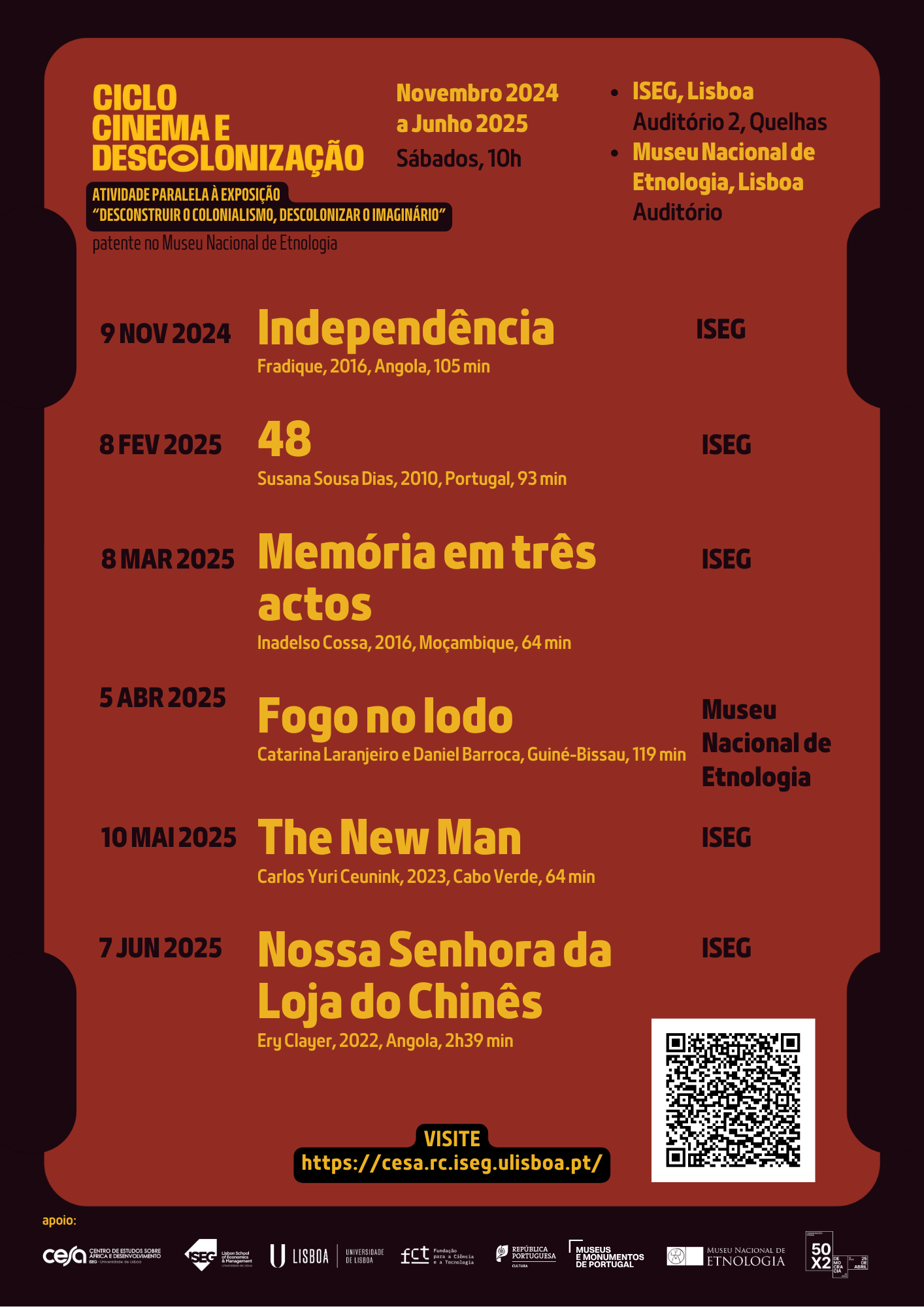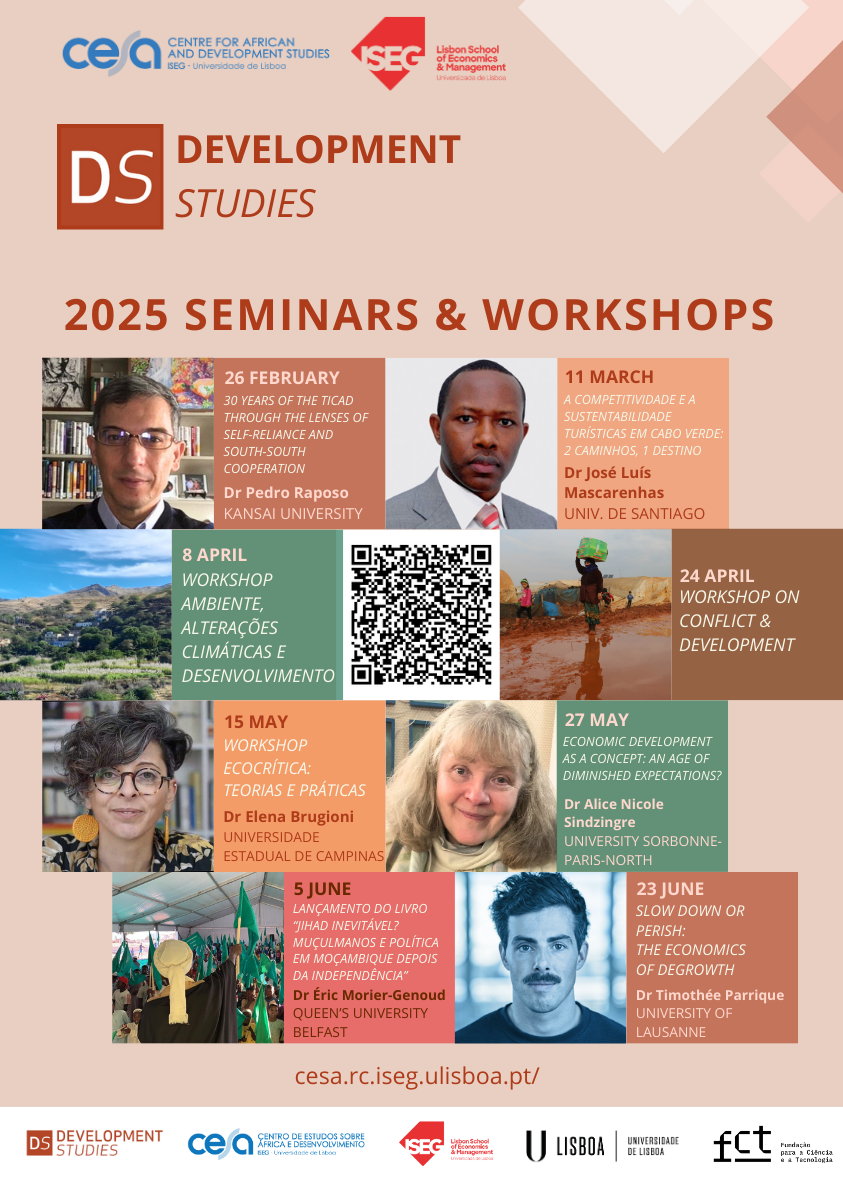featured
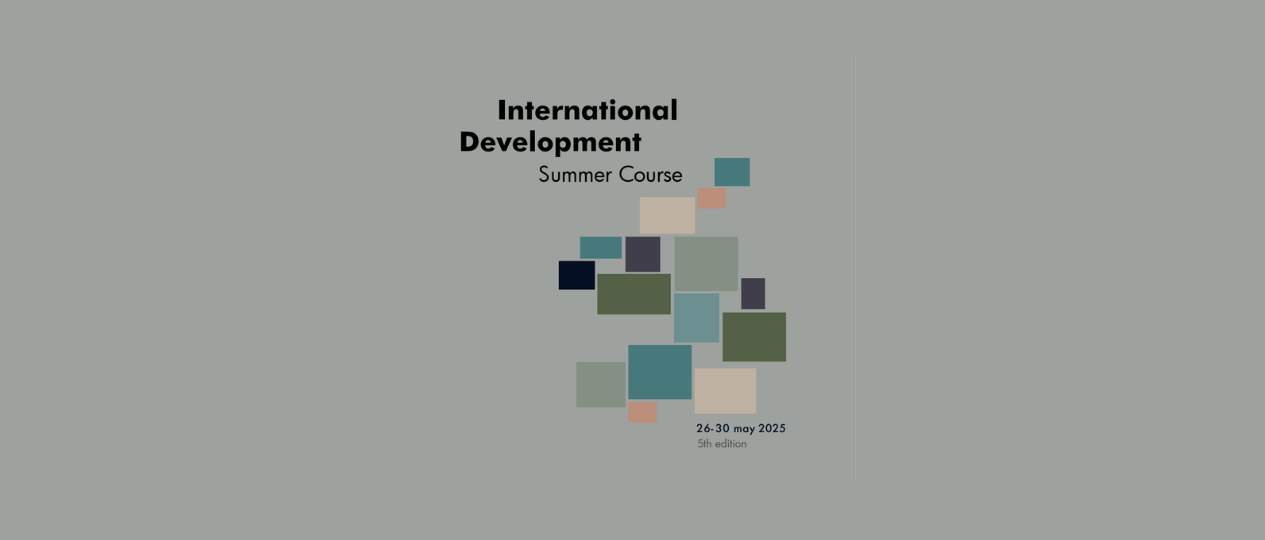
Registration now open! CEsA and Oficina Global join the 5th Edition of the International Development Summer Course
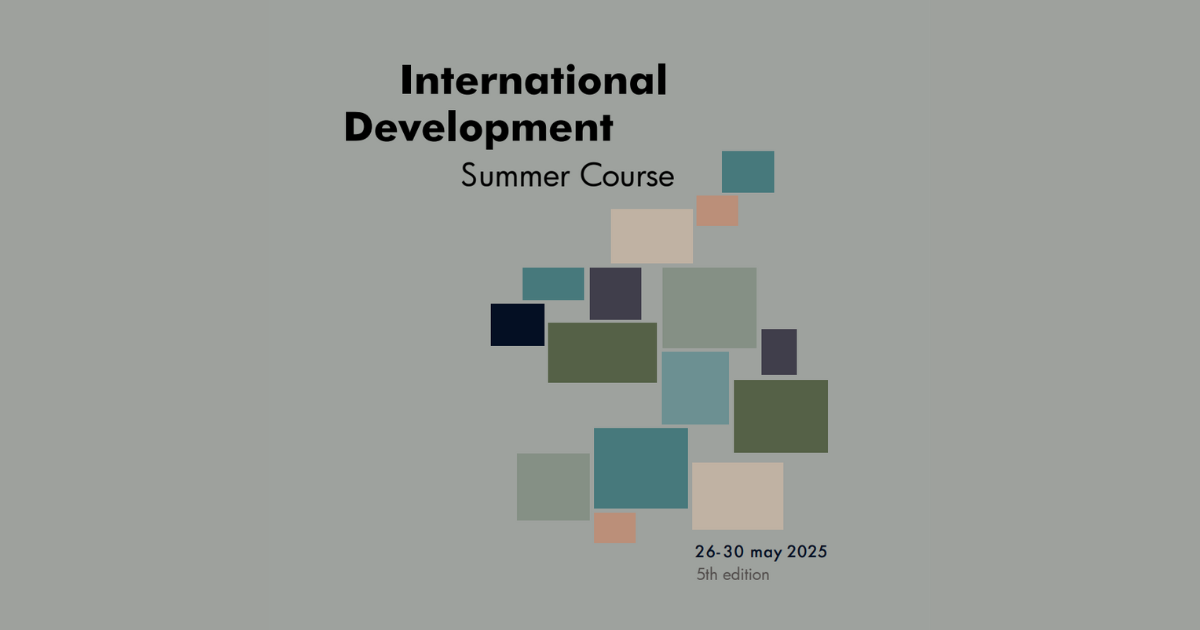
The CEsA – Centre for African and Development Studies (ISEG RESEARCH/ISEG/ULisboa) and Oficina Global are proud to be institutional partners of the 5th Edition of the International Development Summer Course, organised in partnership with Calouste Gulbenkian Foundation and Plataforma Portuguesa das ONGD. This edition will have as its theme “Cooperation in a Disrupted World: Who’s setting the rules?”, and will take place online over five mornings, from 26 to 30 May (11 a.m. to 1 pm UTC+1, Lisbon time). There will be simultaneous interpretation ENG-PT-ENG.
The preliminary programme can be acessed here. Registration must be done by filling out this form.
Read more:
International Development Summer Course – 5ª edição – Plataforma Portuguesa das ONGDs Website
Author: CEsA Communication (comunicacao@cesa.iseg.ulisboa.pt) with information from Plataforma Portuguesa das ONGDs
Image: Plataforma Portuguesa das ONGDs/Reproduction
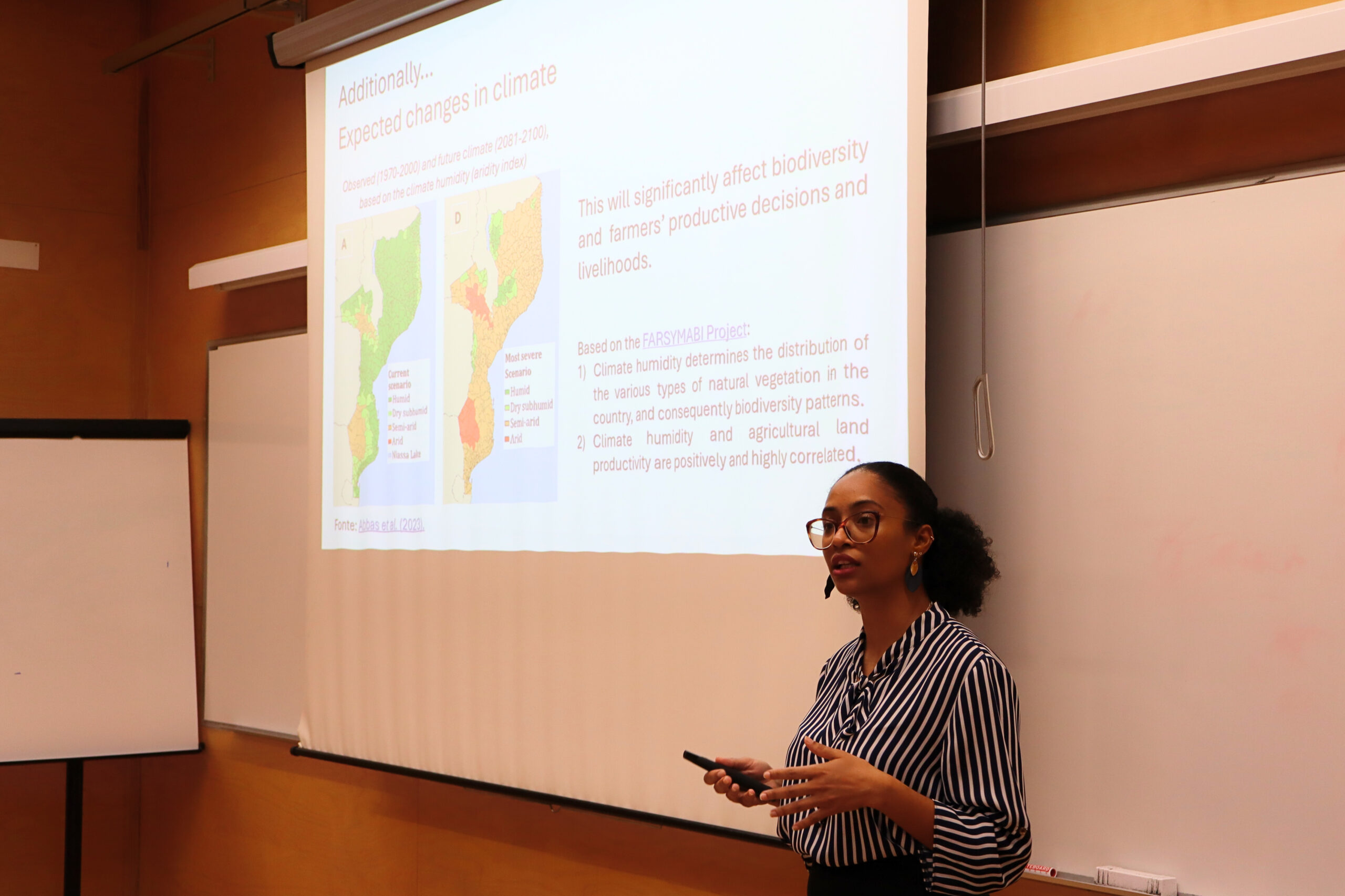
Recording of the DS Seminar “Biodiversity Conservation vs Local Development: Mainstreaming biodiversity into the agricultural sector in Mozambique” available on CEsA’s YouTube Channel
The Communication ‘Biodiversity Conservation vs Local Development: Mainstreaming biodiversity into the agricultural sector in Mozambique’ was presented by Dr Máriam Abbas (OMR, Mozambique, and Institute for Natural Resources Technology and Management, Germany) on 8 April 2025 under the Development Studies Workshop on Environment, Climate Change and Development. The session was recorded and is now available on CEsA’s YouTube channel.
This event was part of the Development Studies Seminars, an initiative that, since 1991, has been promoting research in the study areas of the Master’s in Development and International Cooperation (MDCI) at ISEG and the PhD Programme in Development Studies (PDED) at the University of Lisbon.
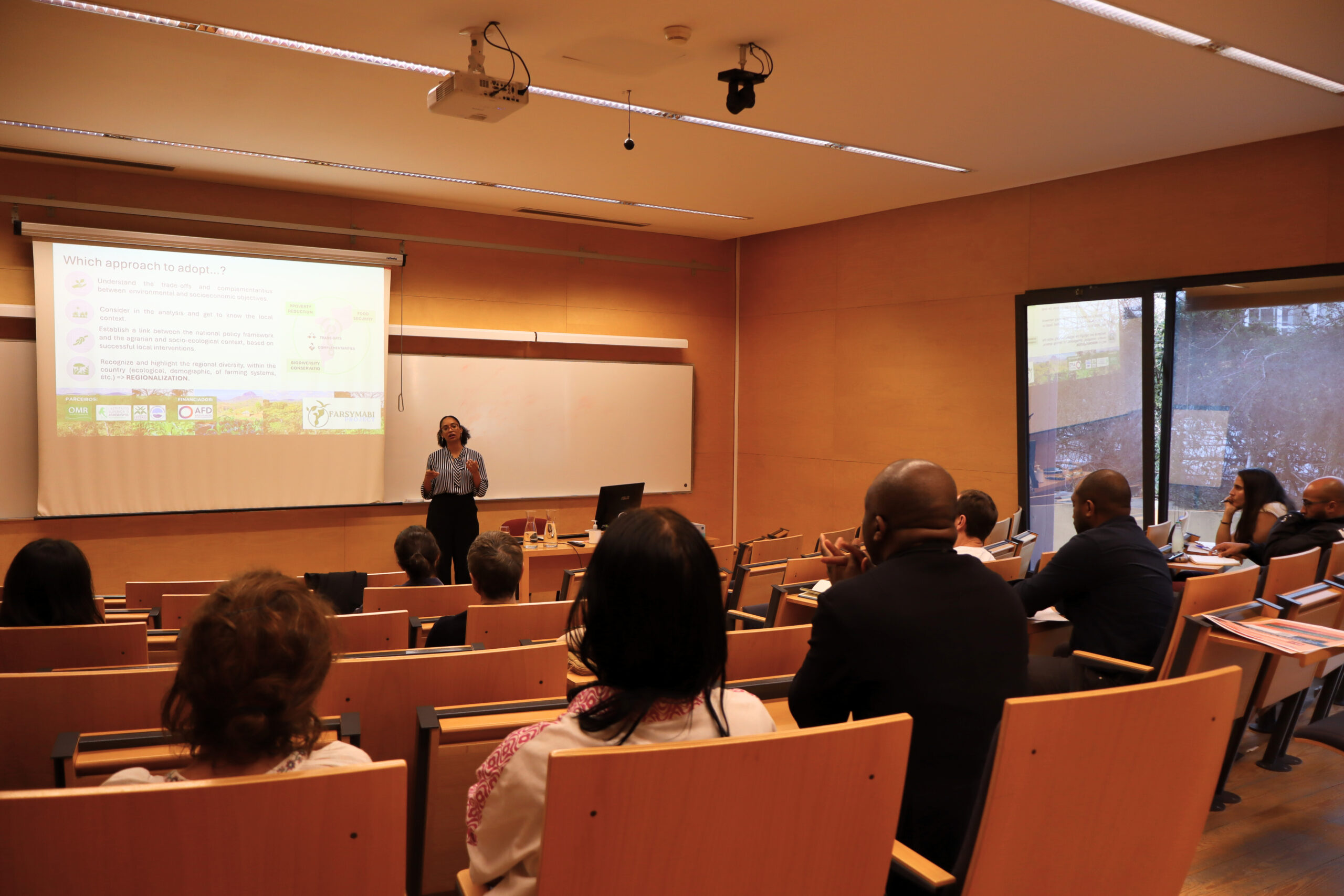

Watch the seminar recording below:
Read more
Development Studies Workshops 2025 | Ambiente, Alterações Climáticas e Desenvolvimento
Biodiversity Conservation vs Local Development: Mainstreaming biodiversity into the agricultural sector in Mozambique (Recording on YouTube)
Author: CEsA Communication (comunicacao@cesa.iseg.ulisboa.pt)
Images: CEsA/Reproduction
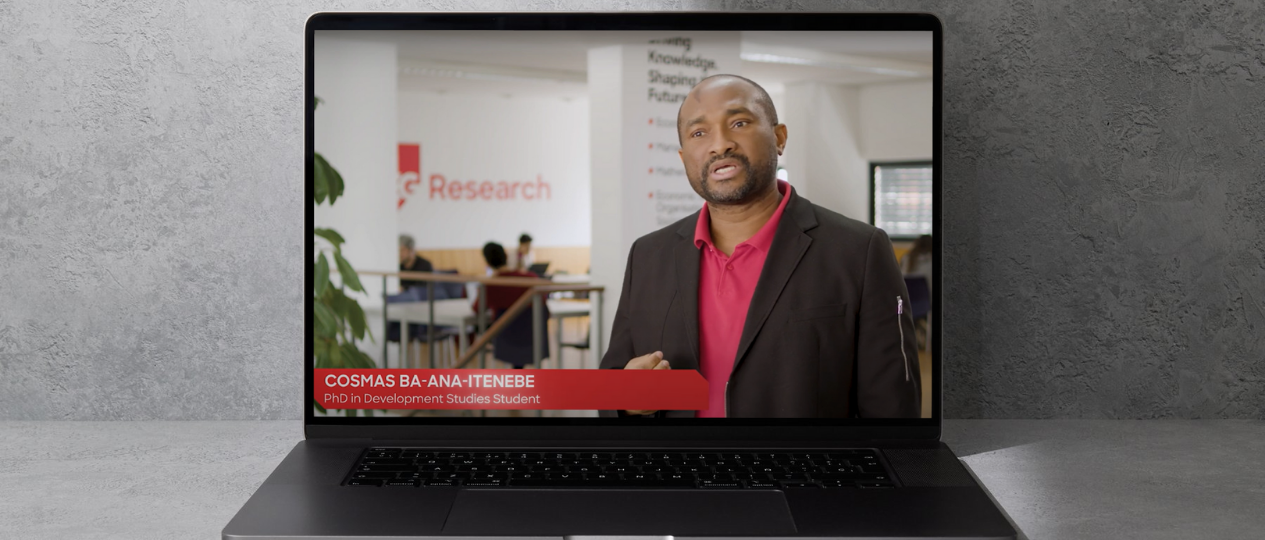
Discover the PhD in Development Studies
Discover the inter-university PhD programme in Development Studies, the result of a partnership between ISEG and other schools of the University of Lisbon — ICS (Institute of Social Sciences), IGOT (Institute of Geography and Spatial Planning), and ISA (School of Agriculture).
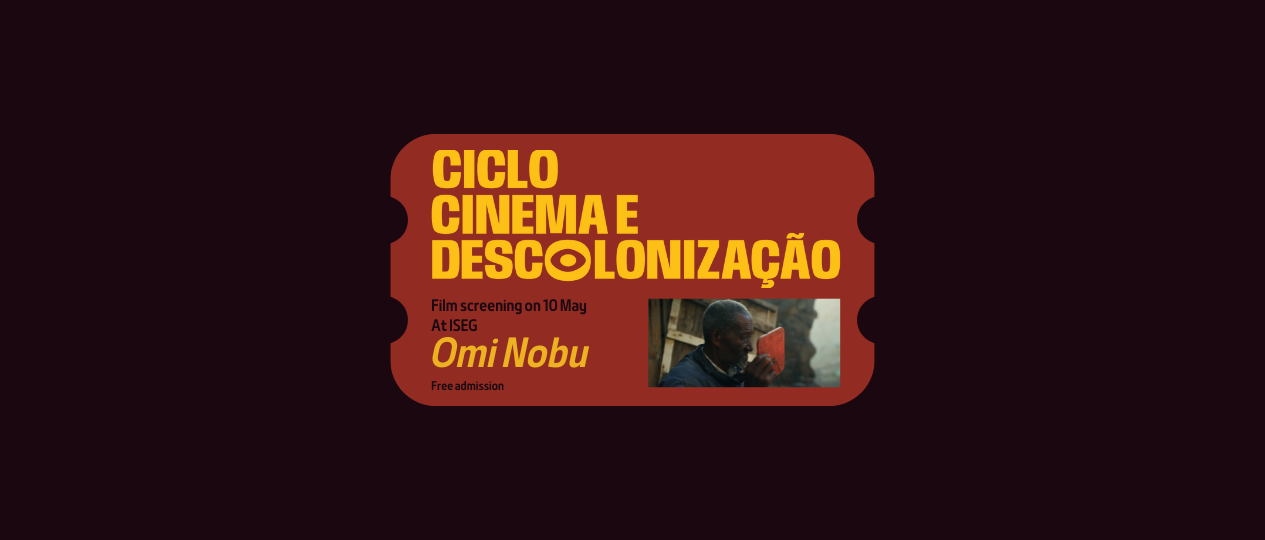
May session of the Cinema and Decolonisation Cycle to screen the documentary ‘Omi Nobu’ (‘The New Man’) at ISEG with free admission
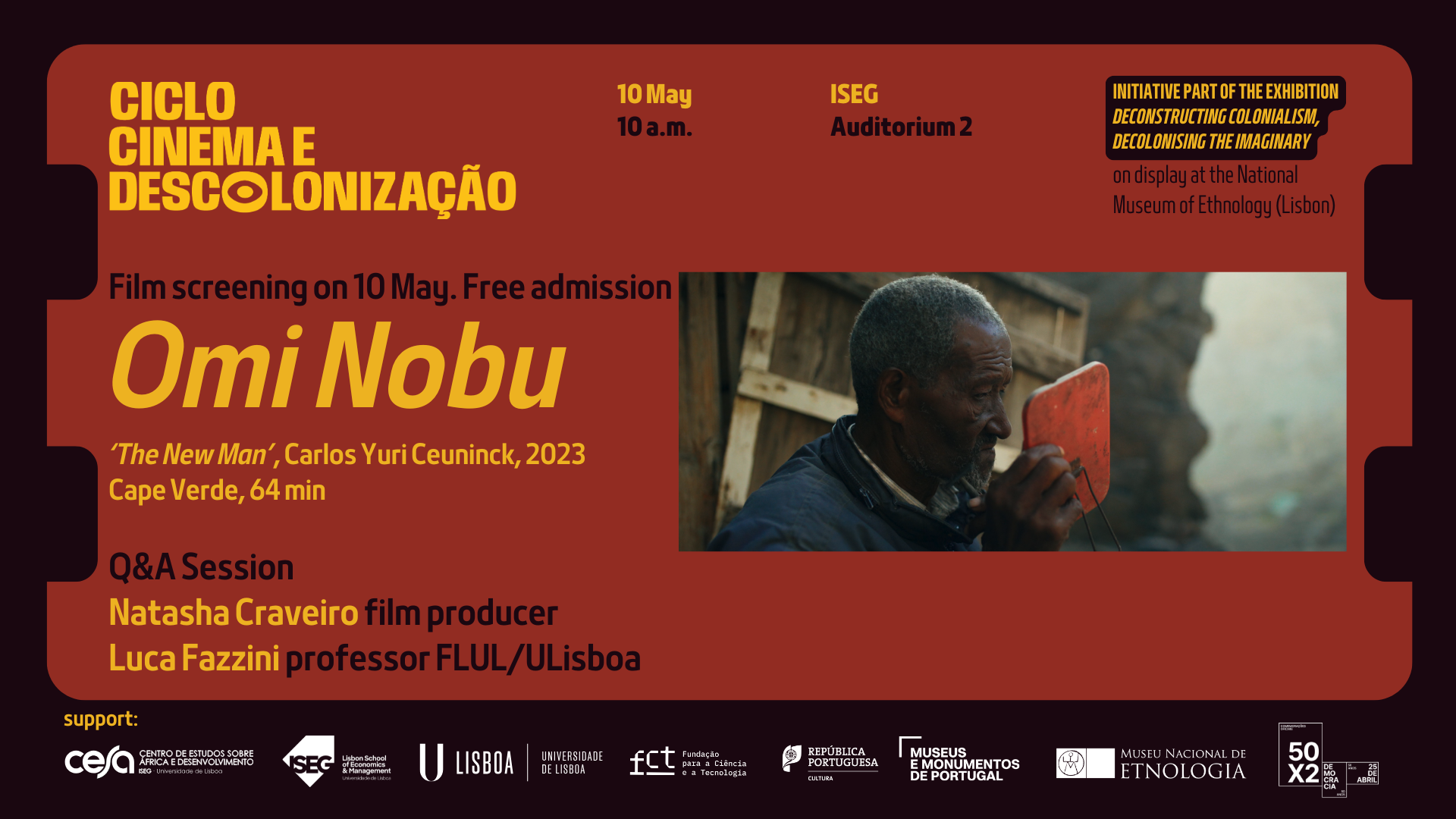
The 2024/2025 season of the Cinema and Decolonisation Cycle has been running since November 2024, hosting cineclub-style sessions to explore the legacies and memories of decolonisation. The next session, scheduled for 10 May, will feature a screening of the documentary Omi Nobu (‘The New Man’, Carlos Yuri Ceuninck, 2023, Cape Verde, 64 min), which was selected for FESPACO 2023 in Ouagadougou, where it won the most prestigious award in the documentary competition, the Golden Standard.
The film will be shown at 10:00 a.m. in the Auditorium 2 of the ISEG (Rua do Quelhas 6, Quelhas Building, 2nd Floor), with free admission. Following the film screening, a Q&A session will take place with the participation of Natasha Craveiro, sociologist, film director, and producer of Omi Nobu, and Luca Fazzini, professor at the Faculdade de Letras da Universidade de Lisboa.
Synopsis – Omi Nobu (The New Man) (Carlos Yuri Ceuninck, 2023, Cape Verde, 64 min)
Omi Nobu explores Man’s intimate relationship with Time; the contrast between the frozen time of an abandoned village and that of man confronts us with our own mortal condition. Quirino’s story is also a confrontation between tradition and modernity, between Man’s attachment to the Earth and his relationship with Nature. The story takes place on the island of Sao Nicolau in Cabo Verde, in Ribeira Funda, a small village located at the bottom of a deep valley surrounded by high mountains and a rough ocean. Its inhabitants have experienced such a series of disastrous events that frightening superstitions have led them to flee the village to escape the forces of evil. Everyone left the village to settle in the nearby Estância de Brás. All except one. One man remained: Quirino.
For over thirty years, 77-year-old Quirino has been the sole inhabitant of Ribeira Funda, the ghost village. He has survived for decades by fishing and growing vegetables. He spends his days contemplating the ocean and the majestic mountains that surround his home. His only company is a rooster, a few sparrows and a battery-powered portable radio, which hums with news from the rest of the world. But in the twilight of his life, Quirino, faced with an uncertain future and the harassing weight of isolation, illness and old age, resolves to leave the only place he has ever known. Omi Nobu takes us on a journey through the days and nights of the past, present and future of a village, a land and a man, and, in fine, meditates on our ontological relationship with the finitude of time and space.
Credits
Director: Carlos Yuri Ceuninck
Producers: Natasha Craveiro and Aurélien Bodinaux
Co-Producers: Paulo de Carvalho / Gudula Meinzolt / Alyaa Musa
Written by Carlos Yuri Ceuninck and César Schofield
Director of Photography: Arilson Almeida
Head of Sound: David Medina
Editor: Antoine Donnet
Original Soundtrack: Henrique Silva
Foley Sound: Elias Vervecken
Sound Editor: Virginie Messiaen
Sound Design: Nuno Miranda
Sound Mixing: Renaud Guillaumin
Color Grading: Veerle Zeelmaekers
Country of Production: Cabo Verde / Belgium / Germany / Sudan
Production: Korikaxoru Films / Neon Rouge Production / Autentika Films / Black Balance Films
2023 / Format 2.39 / Duration 64′
Awards
[2023] Prémio L’Étalon d’Or de Melhor Documentário de Longa-Metragem, FESPACO – Festival Panafricano de Cinema e Televisão de Ouagadougou, Burkina Faso
[2024] Menção Honrosa na categoria de Melhor Documentário de Média-Metragem, Hot Docs Canadian International Documentary Festival
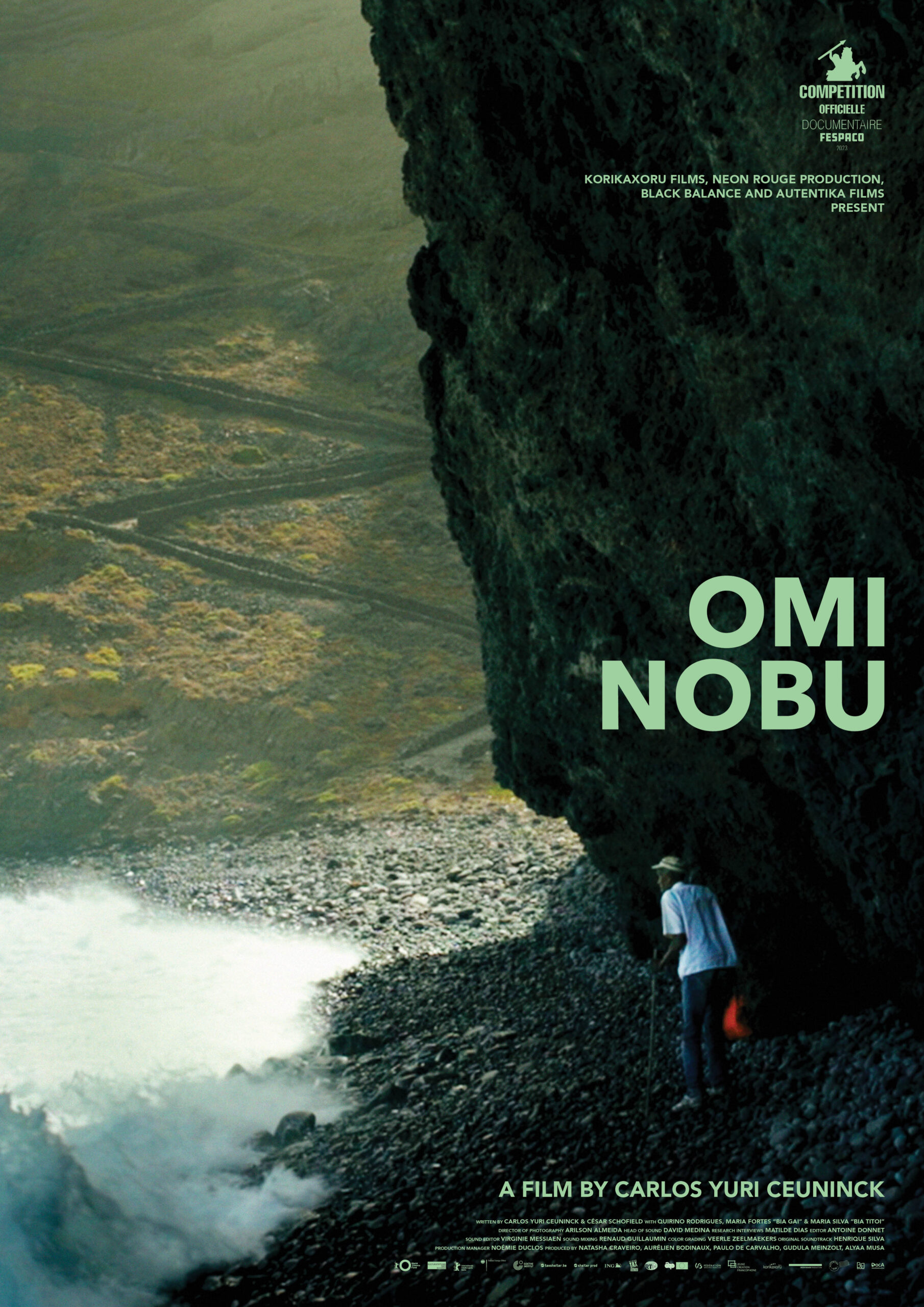
Get to know the director:

Carlos Yuri Ceuninck was born in 1976 in Santo Antão, Cape Verde. He studied Art History and Foreign Languages in Belgium, Anthropology in the United States, and Film in Cuba, specialising in documentary production. He has directed several short documentaries, including Listen and Sea, Without Taste, Touch or Smell (2005), and To Beef or Not to Beef and That is the Question on the Isle of Mu (2004). His first feature-length documentary, The Master’s Plan, was selected for the official competition at the Africa International Film Festival (AFRIFF 2021) in Nigeria and at STLOUIS’S DOCS 2021 in Senegal. His second feature-length documentary, Omi Nobu (also known as The New Man), was selected for FESPACO 2023 in Ouagadougou, where it won the most prestigious award in the documentary competition, the Golden Standard.
About the Cinema and Decolonisation Cycle
The sessions of the Cinema and Decolonisation Cycle will continue until June 2025, with screenings taking place in Auditorium 2 at ISEG (with the exception of the 5 April, which will be held at the National Museum of Ethnology). This initiative runs parallel to the exhibition Deconstructing Colonialism, Decolonising the Imagination, on display at the National Museum of Ethnology until 2 November.
Check out the programme below:
Decolonisation must be understood as an ongoing process, one that needs to be embraced and integrated into social, political, cultural, and personal dynamics. The project aims to create an open, dynamic space for sharing memories, narratives, dialogues, and reflections. It is coordinated by researcher Jessica Falconi (CEsA/ISEG/ULisboa) and curated by researcher and filmmaker Isabel Noronha (CEsA/ISEG/ULisboa) and filmmaker Camilo de Sousa.
Coordination: Jessica Falconi (CEsA/ISEG/ULisboa)
Curation: Isabel Noronha (CEsA/ISEG/ULisboa) and Camilo de Sousa
Scientific Consulting: Isabel Castro Henriques (CEsA/ISEG/ULisboa), Joana Pereira Leite (CEsA/ISEG/ULisboa), and Ana Mafalda Leite (CEsA/ISEG/ULisboa)
Collaboration: Luca Fazzini and João Moreira Silva
Support: CEsA/ISEG/ULisboa
Read more:
Omi Nobu, The New Man – FESPACO website
Omi Nobu, The New Man – Autentika Films website
Ciclo Cycle of Cinema and Decolonization | Screening of the film “The New Man”
Omi Nobu – Trailer on Vimeo
Programme for the 2024/2025 season of the Cinema and Decolonisation Cycle, in parallel with the exhibition ‘Deconstructing Colonialism, Decolonizing the Imagination’
Author: CEsA Communication Team (comunicacao@cesa.iseg.ulisboa.pt)
Image: Reproduction/Kintop
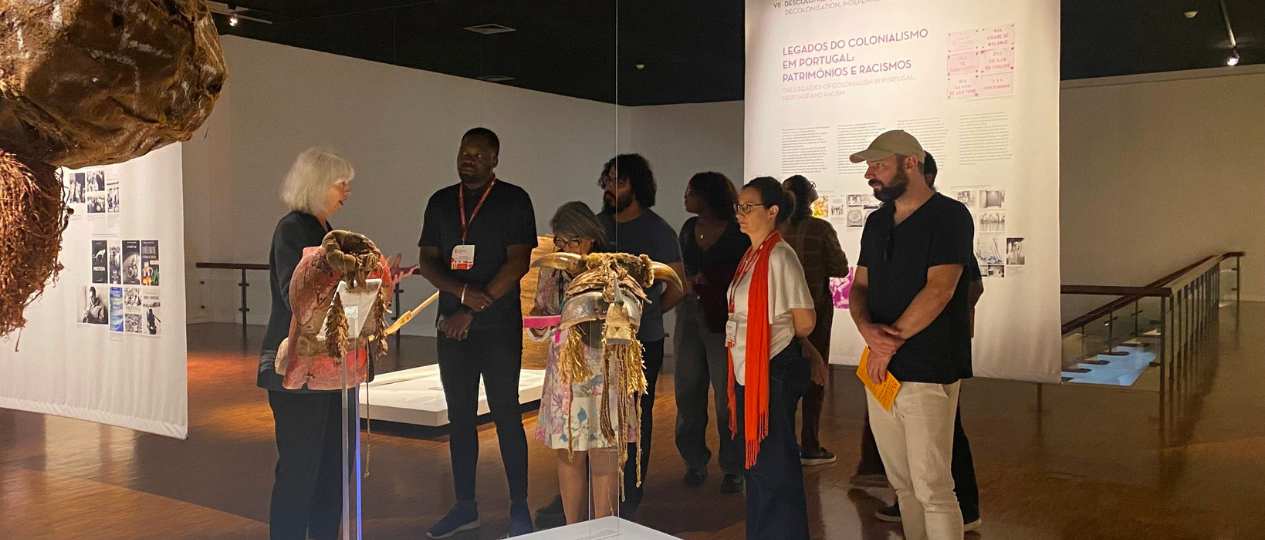
Guided Tours of the Exhibition Deconstructing Colonialism, Decolonising the Imaginary
The National Museum of Ethnology in Lisbon is organising guided tours of the exhibition Deconstructing Colonialism, Decolonising the Imaginary. Portuguese Colonialism in Africa: Myths and Realities, in collaboration with the Executive Committee.
The tours take place on select Sundays each month, always at 11:30 AM, and require prior registration via email: se.mnetnologia@museusemonumentos.pt. The schedule of guided tours is available on the Museum’s website.
Author: CEsA Communication Team (comunicacao@cesa.iseg.ulisboa.pt)
Image: Reproduction/CEsA
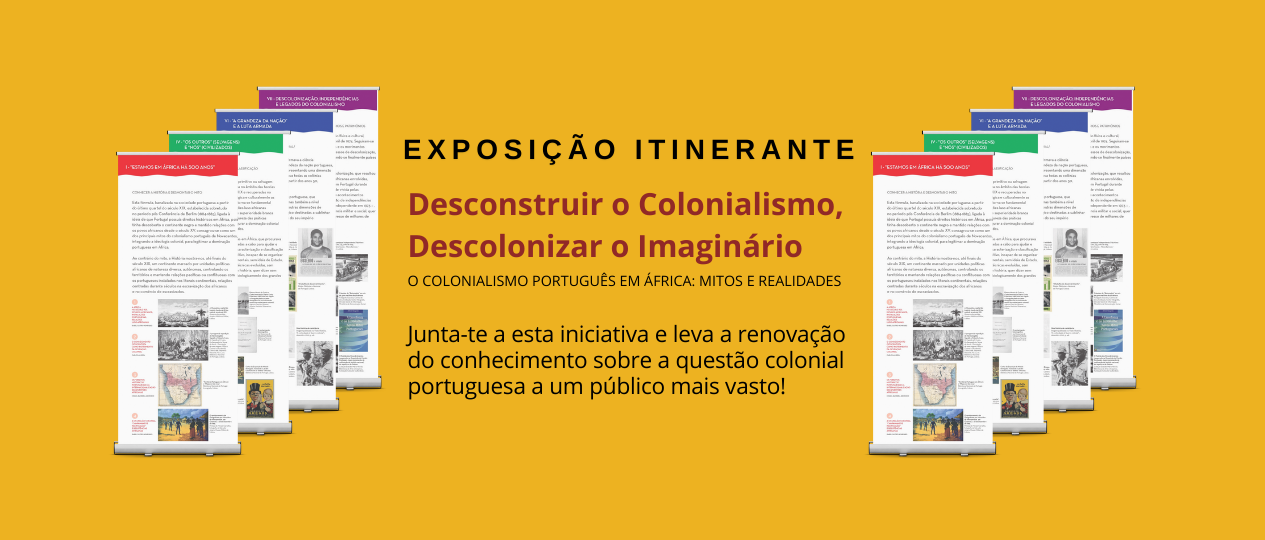
Partner with the travelling exhibition ‘Deconstructing Colonialism, Decolonising the Imaginary’ to bring this debate to new audiences
The exhibition ‘Deconstructing Colonialism, Decolonising the Imaginary. Portuguese Colonialism in Africa: Myths and Realities’ is open to the public until 2 November 2025 in the largest temporary exhibition hall of the National Museum of Ethnology (Lisbon). It invites visitors to engage in a profound reflection and deconstruction of the myths surrounding Portuguese colonialism in Africa during the 19th and 20th centuries, aiming to renew knowledge on the colonial question.
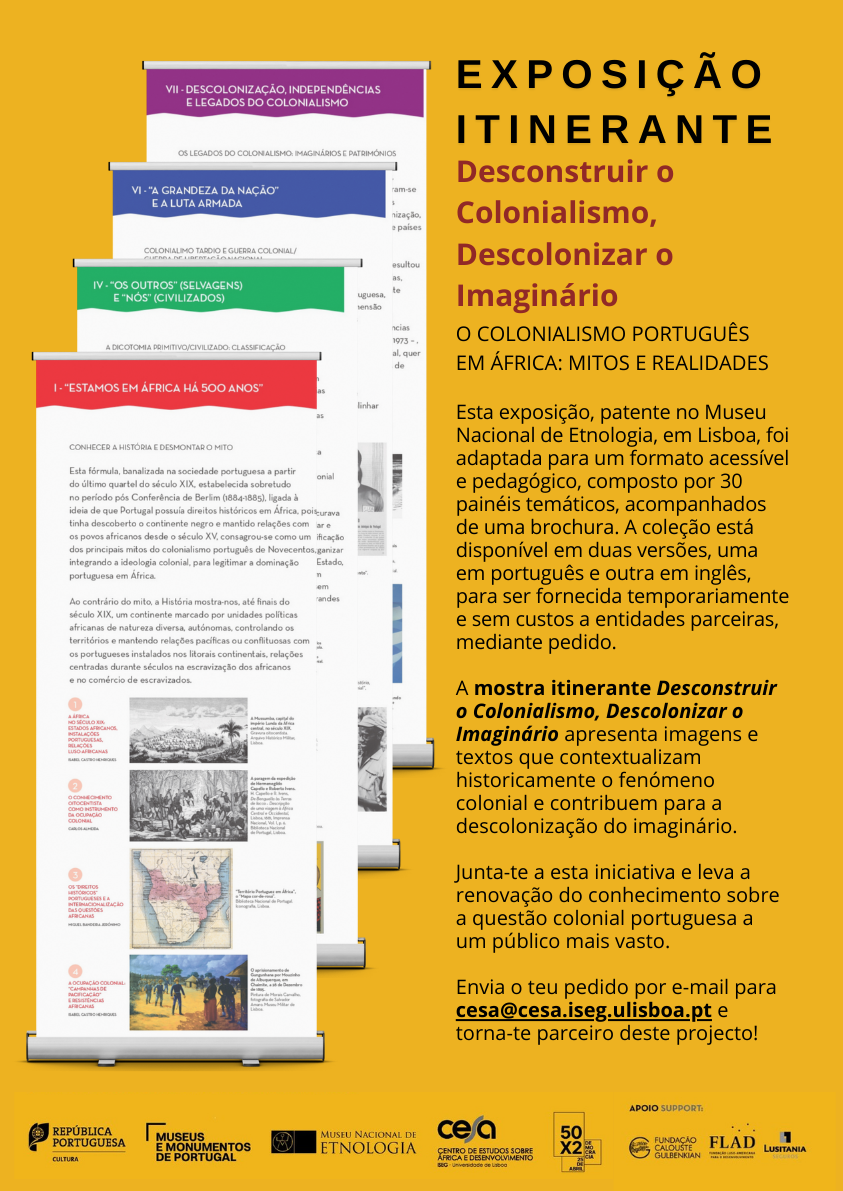
The exhibition ‘Deconstructing Colonialism, Decolonising the Imaginary. Portuguese Colonialism in Africa: Myths and Realities’, on display at the National Museum of Ethnology in Lisbon until 2 November 2025, has been adapted into an accessible and educational format, consisting of 30 thematic panels accompanied by a brochure.
The travelling exhibition Deconstructing Colonialism, Decolonising the Imaginary presents images and texts that provide historical context on the colonial phenomenon and contribute to the decolonisation of the imaginary, fostering a renewal of knowledge on the Portuguese colonial question.
The collection is available in two versions, one in Portuguese and the other in English, and can be temporarily loaned free of charge to partner institutions upon request via email at cesa@cesa.iseg.ulisboa.pt.
Join this initiative and become a partner in this project!
The project was conceived and coordinated by CEsA researcher and historian Isabel Castro Henriques to commemorate the 50th anniversary of the 25th of April, emphasising the importance of understanding the past to build a more inclusive future. It is co-organised by CEsA and the National Museum of Ethnology, with the support of the 50 Years of the 25th of April Commemorative Commission.
Read more:
Author: CEsA Communication Team (comunicacao@cesa.iseg.ulisboa.pt)
Image: Reproduction/CEsA

#DemocracyinAction! CEsA joins a European consortium in a €3 million Horizon Europe project to investigate political expression and participation through grassroots culture and the arts
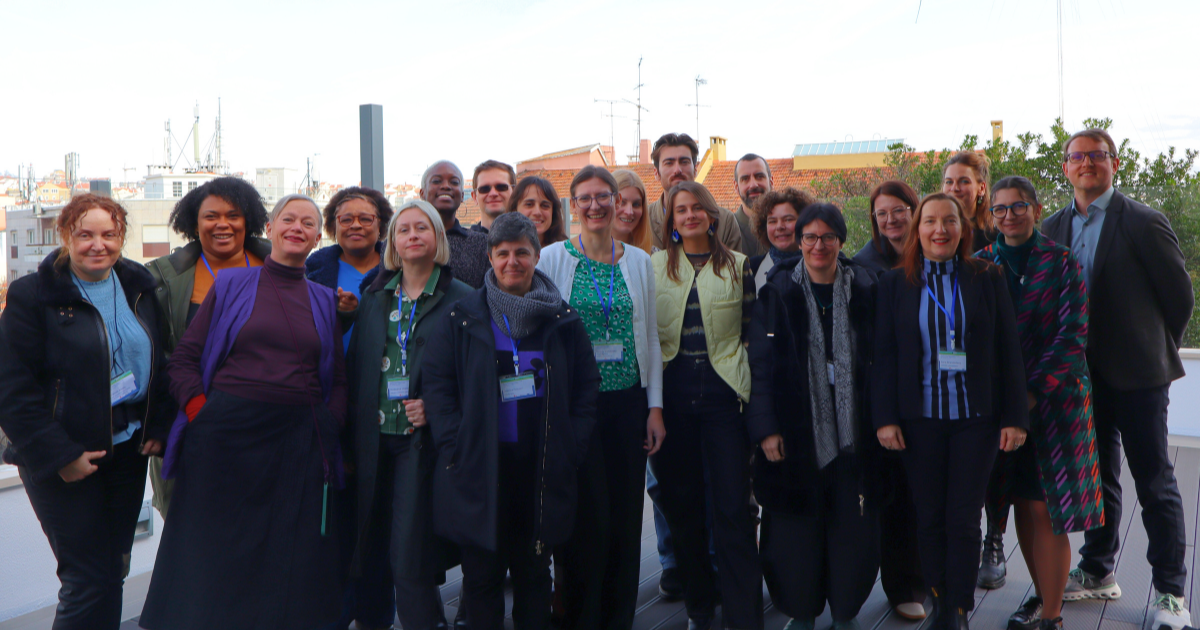
The CEsA – Centre for African and Development Studies (ISEG RESEARCH/ISEG – University of Lisbon), under the coordination of Dr. Iolanda Évora and Dr. Jessica Falconi, hosted a group of over 20 European researchers on 12–14 February 2025 for the Kick-Off Meeting, marking the beginning of the Portuguese centre’s collaboration in the international project #DemocracyinAction: Grassroots Culture, Arts and Cultural Spaces for Political Participation and Expression Online and Offline in a Resilient Europe.
The project is led by Dr. Sara Brandellero and Dr. Kamila Krakowska Rodrigues from Leiden University, Netherlands, and is funded by Horizon Europe with a budget of €3 million, under the Work Programme on Culture, Creativity and Inclusive Society.
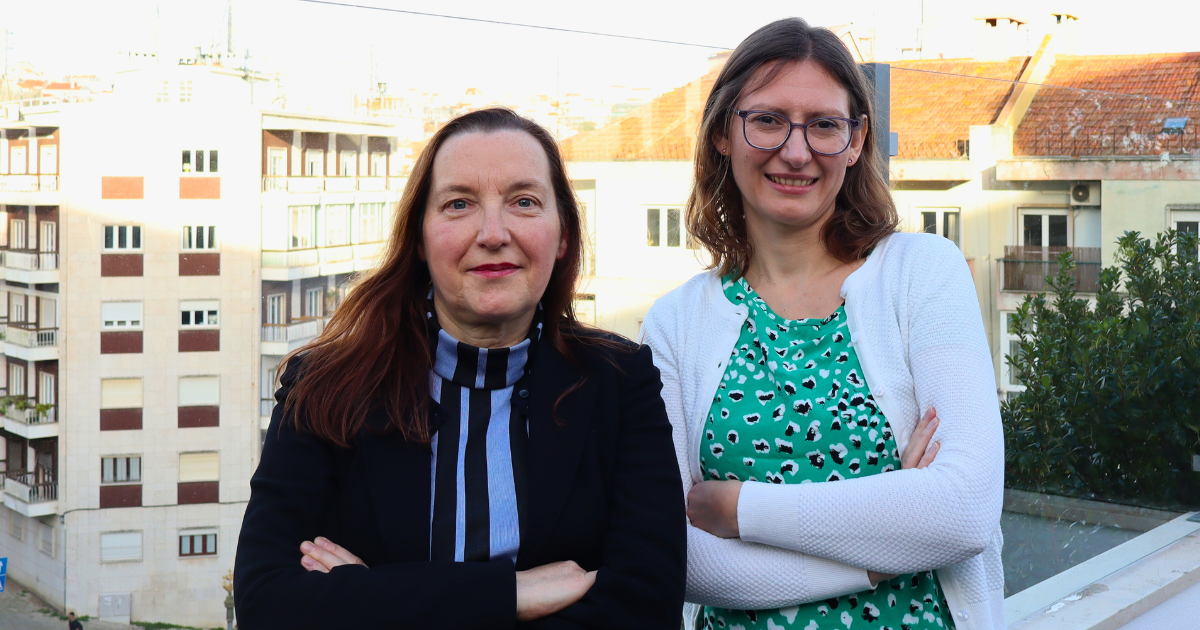
#DemocracyinAction aims to study grassroots cultural and artistic organisations in physical spaces, as well as their presence on social media and in the metaverse. At a time when democracy in Europe faces unprecedented challenges, this research seeks to understand the critical potential of these initiatives in promoting democracy by identifying solutions to enhance meaningful political expression and civic participation in four key areas of social transformation:
- Nightivism: exploring urban nightlife culture as a form of political engagement;
- Women’s Rights Mobilisation;
- Racial and Ethnic Civic Participation through Cultural Expression;
- Youth Activism and Civic Education.
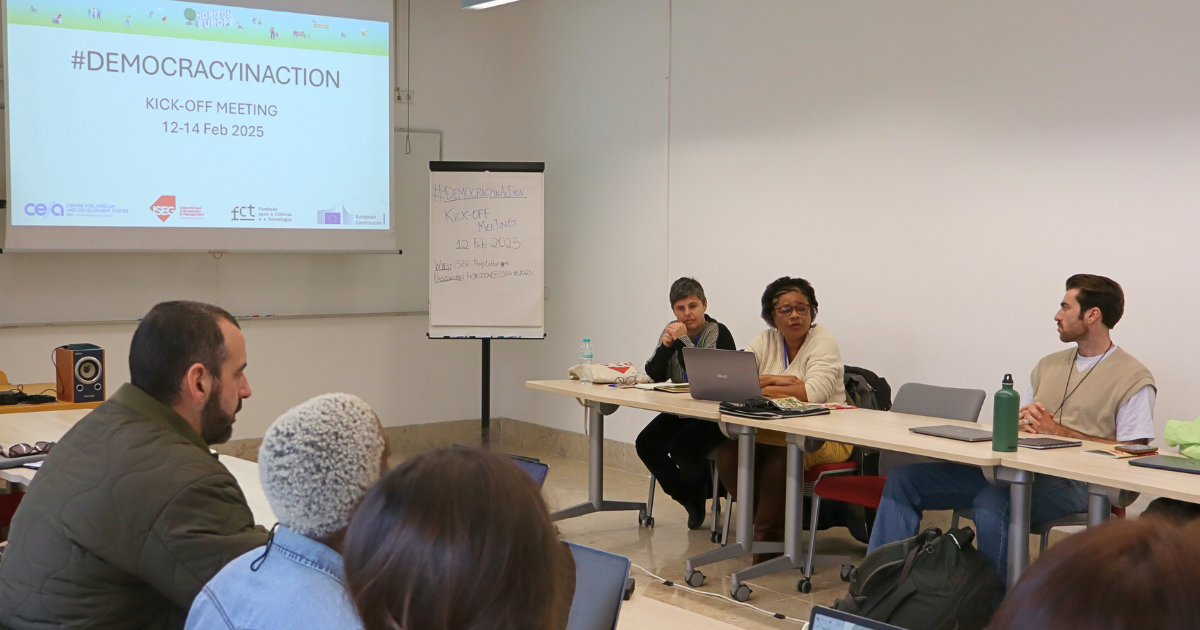
CEsA (Portugal) & CSIC (Spain) Work Package: Race, Ethnicity and Civic Participation
The Iberian Peninsula has been chosen as a paradigmatic case of cultural productions and manifestations led by communities that, despite facing racialisation and ethnic discrimination, have significantly reshaped national cultural landscapes and contributing to democratic processes.
Within this context, the CEsA team will lead the Work Package on Race, Ethnicity and Civic Participation, focusing on the cultural and artistic productions and the spaces created by Afro-diasporic communities, identified by their ethnic-racial belonging. As a case study, the research will explore the experiences of the Afro-diaspora, alongside the cultural productions of the Romani community in Portugal and the Moroccan-origin community in Spain.
The research will be developed in collaboration with local organisations such as Associação Passa Sabi and AfroLink. Passa Sabi is dedicated to empowering Afro-diasporic and Romani youth in multicultural and economically vulnerable neighbourhoods. AfroLink is a digital platform promoting Black entrepreneurship, particularly among women.
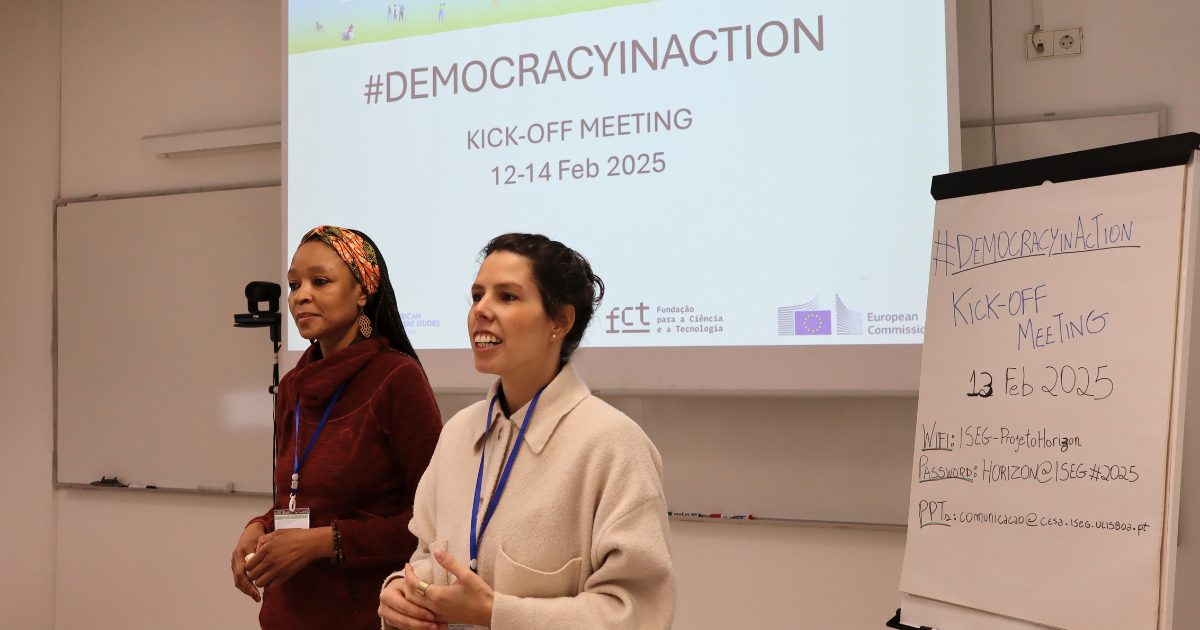
Innovation and Impact
Collaboration with community centres, theatres, exhibition halls, and artists, brings tested creative tools to mobilize people into civic participation and mitigate polarization. Working with digital designers and developers, #DemocracyinAction tests the unknown potential of virtual immersive spaces, including novel trends of virtual nightclubs, to deliver cutting-edge research and policy recommendations for a democratic and safe use and design of social media and metaverse environments.
About the Consortium
The consortium is composed of nine partners based in six European countries:
- Leiden University (Netherlands) – Coordinator;
- Santagata Foundation for the Economy of Culture (Italy);
- Jagiellonian University (Poland);
- Centre for African and Development Studies (CEsA) (Portugal);
- DE/MO Foundation (Netherlands) – Promoting democracy and culture among youth;
- National Research Council CSIC (Spain);
- VibeLab (Netherlands) – Urban nightlife research and advocacy;
- Hochschule Magdeburg-Stendal (Germany);
- Institute of Public Affairs (Poland) – Think-tank.
The project will also engage stakeholders from all EU regions, as well as from the Americas, Africa, the Middle East, and Asia, in both democratic and non-democratic contexts.
For more information, follow updates on the official CEsA website, LinkedIn, Facebook, and CEsA Agenda.
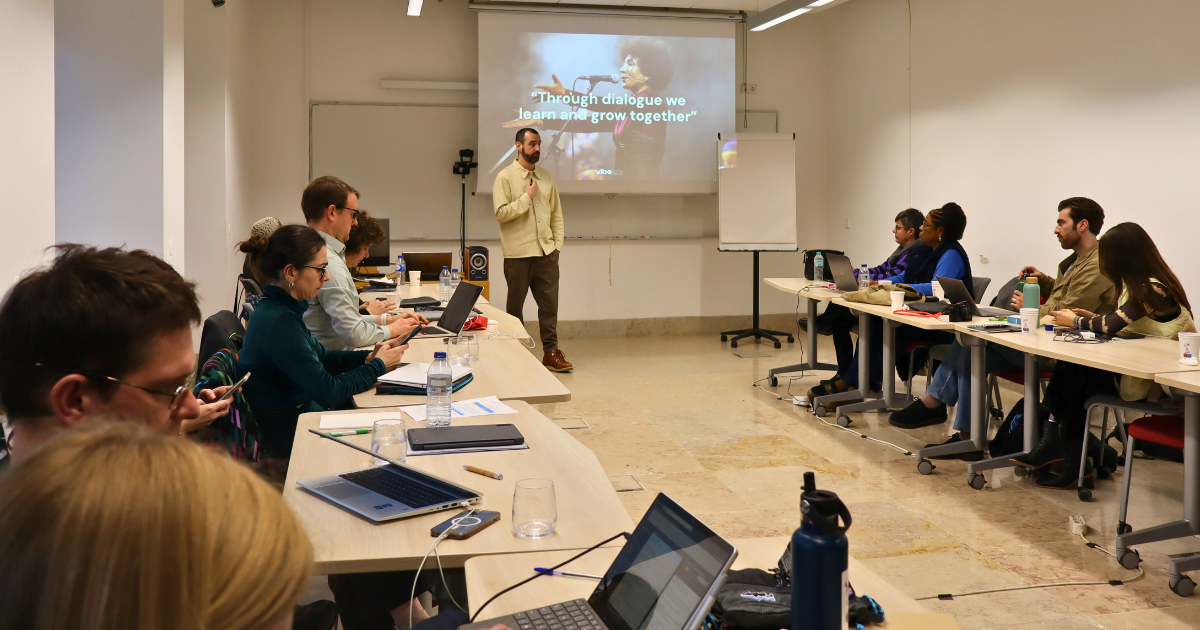
Read more:
Author: CEsA Communication (comunicacao@cesa.iseg.ulisboa.pt)
Images: CEsA/Reproduction

Development Studies Seminars to kick off on 26 February with a series of presentations, workshops, a book launch and international scholars
The Centre for African and Development Studies (CEsA/ISEG RESEARCH/ISEG/Universidade de Lisboa), in collaboration with the coordination of the Masters in Development and International Cooperation (MDCI/ISEG) and the PhD in Development Studies (PDED/Universidade de Lisboa), invites you to the Development Studies Seminars 2025 — a series of eight sessions featuring four seminars, four workshops, and a book launch, delivered by international scholars. These sessions aim to foster reflection on various topics within the field of Development Studies. Since 1991, the DS Seminars have been promoting research conducted in the areas covered by the MDCI and PDED programmes.
The sessions will be held with free admission at ISEG (Rua do Quelhas 6, Anfiteatro 23, Francesinhas 1, 1200-781, Lisbon, Portugal), from 26 February to 23 June 2025.
Details on the dates, times, venues, topics, and presenters can be found below:
26 February, 6 p.m. – 8 p.m., Auditorium 3-Quelhas Building, ISEG
Theme: 30 Years of the Tokyo International Conference on African Development Through the Lenses of Self-Reliance and South-South Cooperation
Presenter: Dr Pedro Raposo (CEsA and Kansai University, Japan)
11 March, 8 p.m. – 10 p.m., Room 006-Francesinhas 1 Building, ISEG
Theme: A Competitividade e a Sustentabilidade Turísticas em Cabo Verde: 2 caminhos, 1 destino
Presenter: Dr José Luís Mascarenhas (Universidade de Santiago, Cape Verde)
8 April, 6 p.m. – 9 p.m., Room Novo Banco-Quelhas Building, ISEG
Theme: Workshop on Environment, Climate Change and Development
Presentations: 1. Conservação da Biodiversidade vs Desenvolvimento Local: uma abordagem para a integração da biodiversidade no sector da agricultura em Moçambique (presenter: Máriam Abbas, CEsA and Observatório do Meio Rural, Mozambique); 2. Climate Change, Environment, and Public Health. Understanding the morbidity and mortality circle in Southeast Nigeria (presenters: Vincent Agulonye, CEsA, and Daniel Adayi, CEsA); and 3. Entre Clima e a Terra: Percepções e práticas dos pequenos agricultores de Santo Antão (presenters: Sónia Frias, CEsA and ISCSP, and Arlindo Fortes, CEsA)
24 April, 2 p.m. – 6 p.m., Room Novo Banco-Quelhas Building, ISEG
Theme: Workshop on Conflict and Development
Presentations: 1. The Aid-Security Nexus in Times of Polycrisis: Slashing foreign aid to boost militarism and defense spending (presenter: Marcos Farias Ferreira, CEsA and ISCSP); 2. Reclaiming Agency: Navigating situated dilemmas and building resilience in post-conflict development contexts (presenter: Asif Dawar, National Defence University, Paquistan and CEsA); 3. Moving Beyond Humanitarian Handouts: A study of the Internally Displaced Persons’ (IDPs) farmers’ beans market, Auta Balefi, Nasarawa state, Nigeria (presenter: Cosmas Ba-Ana-Itenebe, CEsA); 4. The Implications of the Conflict in Cabo Delgado Province for the Sustainable Development of Pemba City, Mozambique (presenter: Sílvia Amaral, CEsA); 5. Violence and (Under)Development: The Colombian case (presenter: Fabian Garzón-Cuervo, CEsA); 6. Winning Hearts and Minds Through Dialogue: Experimental evidence from Mozambique’s Islamist insurgency (presenter: Henrique Pita Barros, CEsA).
15 May, 10 a.m. – 6 p.m., Anfitheatre 1-Quelhas Building, ISEG
Theme: Workshop on Ecocritic: theories and practices
Presenter: Dr Elena Brugioni (Universidade Estadual de Campinas-UNICAMP, Brazil)
Organisers: Jessica Falconi (CEsA and FLUL) and Ana Mafalda Leite (CEsA and FLUL)
27 May, 6 p.m. – 8 p.m., Room Novo Banco-Quelhas Building, ISEG
Theme: Economic Development as a Concept: An age of diminished expectations?
Presenter: Alice Nicole Sindzingre (CEsA and Paris-North Economics Centre, University Sorbonne-Paris-North, France)
5 June, 6 p.m. – 8 p.m., Room Novo Banco-Quelhas Building, ISEG
Book launch: Jihad Inevitável? Muçulmanos e Política em Moçambique depois da Independência (Tempos e Espaços Africanos), with a seminar held by the author Éric Morier-Genoud (Queen’s University Belfast, UK) and a presentation by Dr Sandra Araújo (ICS)
23 June, 6 p.m. – 8 p.m., Anfitheatre 24-Francesinhas 1 Building, ISEG
Theme: Slow Down or Perish: The Economics of Degrowth
Presenter: Dr Thimothée Parrique (Faculty of Business and Economics, University of Lausanne, Switzerland)
Discussants: Dr Susana Peralta (Nova-SBE), Dr Irina Castro (CES, Universidade de Coimbra), and Dr Alexandre Abreu (CEsA and ISEG)
Read more:
Development Studies Workshops 2025 | Ambiente, Alterações Climáticas e Desenvolvimento
Author: CEsA Communication (comunicacao@cesa.iseg.ulisboa.pt)
Images: CEsA/Reproduction

CEsA Working Paper investigates the complex relationship between forced displacement and human development

The research concludes that the most urgent factors driving forced migration are political violence, particularly civil conflicts, and climate change—both exacerbated by economic crises, food insecurity, and infrastructure damage.
How has refugee outflow evolved internationally? What are the root causes of forced displacement, and what characteristics do refugee-sending countries share? Is there a relationship between forced migration and human development? These are the key research questions explored by authors Marcela Rocha, Master in Development and International Cooperation (ISEG – Universidade de Lisboa), and Professor Eduardo Moraes Sarmento, PhD in Economics with a specialization in Tourism, in CEsA Working Paper No. 121/2025, titled A Glance at International Challenges of Refugee Crises in the New Millennium.
This paper is innovative in bridging refugee studies and development studies to investigate the relationship between forced displacement, its root causes, and human development. Using a qualitative case study methodology, the authors examined refugee outflows from the main origin countries—namely Afghanistan, South Sudan, Syria, Ukraine, and Venezuela (according to UNHCR)—to understand the drivers of these movements and their impact on development.
Working Paper No. 121/2025 can be downloaded from the CEsA collection, available in the Universidade de Lisboa Repository: https://repositorio.ulisboa.pt/handle/10400.5/97910
Abstract:
 This study investigates the intricate relationship between forced displacement and human development. By examining refugee outflows from key regions, this paper seeks to comprehend the factors driving these movements and their development implications. Employing a qualitative case study methodology, the research focuses on the five main refugee outflow countries in 2023. The paper finds that the most relevant factors that induce displacement are political violence, especially civil conflict, and climate change. Refugee emergencies have multiple aggravating elements, like economic crises, food insecurity, and infrastructure damage. Despite not identifying strong correlations between displacement and human development (measured through HDI), except for Syria, the study reveals that these emergencies are simultaneously humanitarian and developmental challenges. Repercussions are more prominent in the Global South since it is the origin and the destination of over 70% of displaced people. The findings reiterate the urgency for integrated policy responses that combine development and humanitarian efforts.
This study investigates the intricate relationship between forced displacement and human development. By examining refugee outflows from key regions, this paper seeks to comprehend the factors driving these movements and their development implications. Employing a qualitative case study methodology, the research focuses on the five main refugee outflow countries in 2023. The paper finds that the most relevant factors that induce displacement are political violence, especially civil conflict, and climate change. Refugee emergencies have multiple aggravating elements, like economic crises, food insecurity, and infrastructure damage. Despite not identifying strong correlations between displacement and human development (measured through HDI), except for Syria, the study reveals that these emergencies are simultaneously humanitarian and developmental challenges. Repercussions are more prominent in the Global South since it is the origin and the destination of over 70% of displaced people. The findings reiterate the urgency for integrated policy responses that combine development and humanitarian efforts.
About the Authors
Marcela Rocha holds a Master’s degree in Development and International Cooperation (ISEG – University of Lisbon).
Eduardo Moraes Sarmento holds a PhD in Economics with a specialization in Tourism. He is the coordinator of the Master’s in Development and International Cooperation at ISEG (University of Lisbon), a researcher, president of CEsA, and a member of the Scientific Committee of ISEG Research.
Click here to explore the full collection of CEsA Working Papers.
Author: CEsA Communication Team (comunicacao@cesa.iseg.ulisboa.pt)
Image: Reproduction
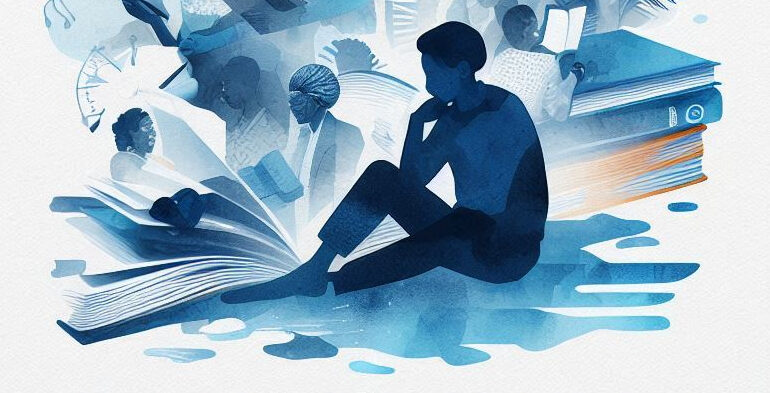
Conference ’50 Years of Mozambican Literature: Trajectories and Creative Practices’ will take place on October 9-10 at Calouste Gulbenkian Foundation
Conference ’50 Years of Mozambican Literature: Trajectories and Creative Practices’
Date: October 9-10, 2025. Free attendance. Time to be confirmed.
Venue:Room 1 of the congress area at the Calouste Gulbenkian Foundation (Av. de Berna, 45A, 1067-001 Lisbon)
Organised by: CEsA – Centre for African and Development Studies (CEsA/CSG/ISEG-ULisboa) and UEM – Eduardo Mondlane University
Supported by: Calouste Gulbenkian Foundation and CEsA/CSG/ISEG-ULisboa
Partnerships: University of Bayreuth, Sorbonne Nouvelle, and State University of Campinas
In the year marking 50 years since African Literatures became part of the curriculum at a Portuguese university (FLUL-ULisboa), this two-day conference, organised by CEsA – Centre for African and Development Studies (CSG/ISEG-ULisboa) in partnership and collaborative effort with Eduardo Mondlane University (UEM) in Mozambique, will feature four thematic round tables. The event will bring together writers, artists, and university lecturers from Portugal and Mozambique to present and discuss developments in the creative and research practices of African literatures, focusing on the progress and future of Mozambican Literature over the past fifty years. Mozambican Literature is considered a unique example within Portuguese-speaking African literatures. Contributions from experts in African Literatures, particularly Mozambican Literature, from European universities (Bayreuth and Sorbonne Nouvelle) and Brazilian universities (UNICAMP – State University of Campinas) will also be included.
This two-day conference, 50 Years of Mozambican Literature: Trajectories and Creative Practices, will highlight the creative dimension as a driving force for research. By incorporating writers, editors, filmmakers, and artists, the event will showcase perspectives on the recent past—spanning half a century—within the realms of creation, teaching, publishing, and translation, while envisioning a promising future shaped by the experiences of younger generations.
Free attendance. Please note that the event does not include academic paper submissions.
Organising Committee:
Ana Mafalda Leite (FLUL/ULisboa and CEsA/CSG/ISEG/ULisboa)
Lucílio Manjate (UEM)
Scientific Committee:
Ana Mafalda Leite (FLUL/ULisboa and CEsA/CSG/ISEG/ULisboa)
Egídia Souto (Sorbonne Nouvelle)
Elena Brugioni (UNICAMP)
Elídio Nhamona (UEM)
Jessica Falconi (FLUL/ULisboa e CEsA/CSG/ISEG/ULisboa)
Joana Pereira Leite (CEsA/CSG/ISEG/ULisboa)
José Camilo Manusse (UEM)
Lucílio Manjate (UEM)
Ute Fendler (University of Bayreuth)
Author: CEsA Communication (comunicacao@cesa.iseg.ulisboa.pt)
Images: Reproduction
